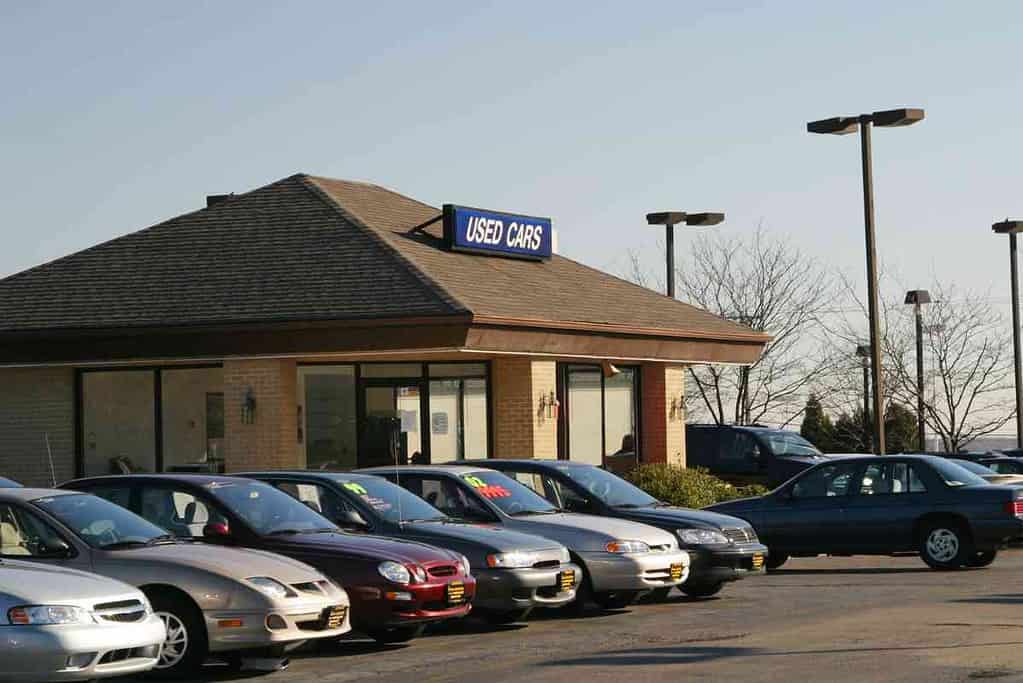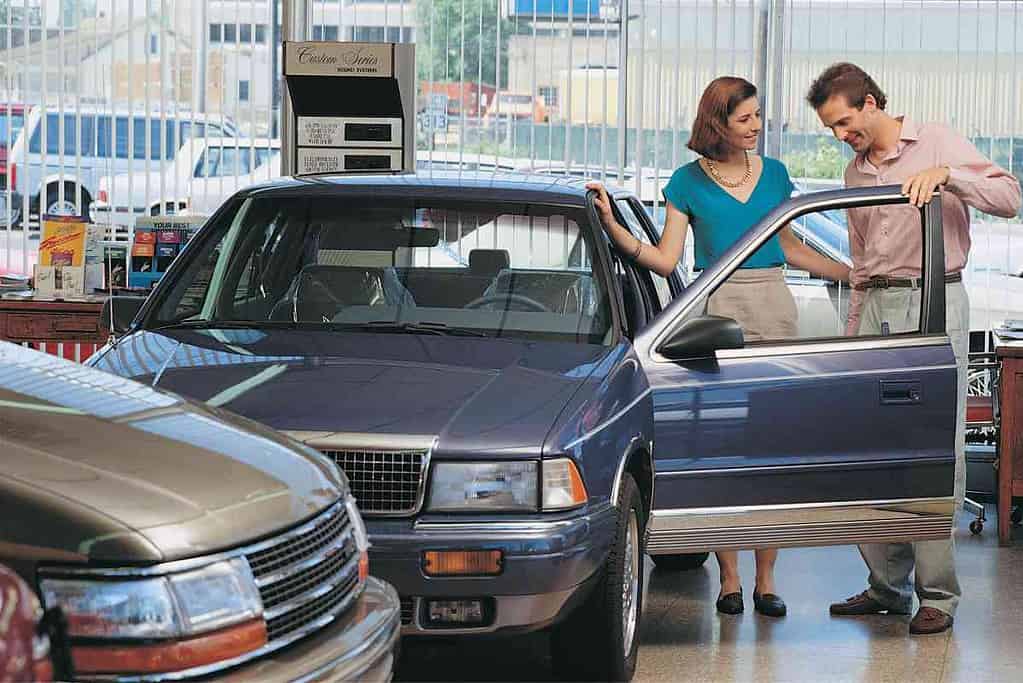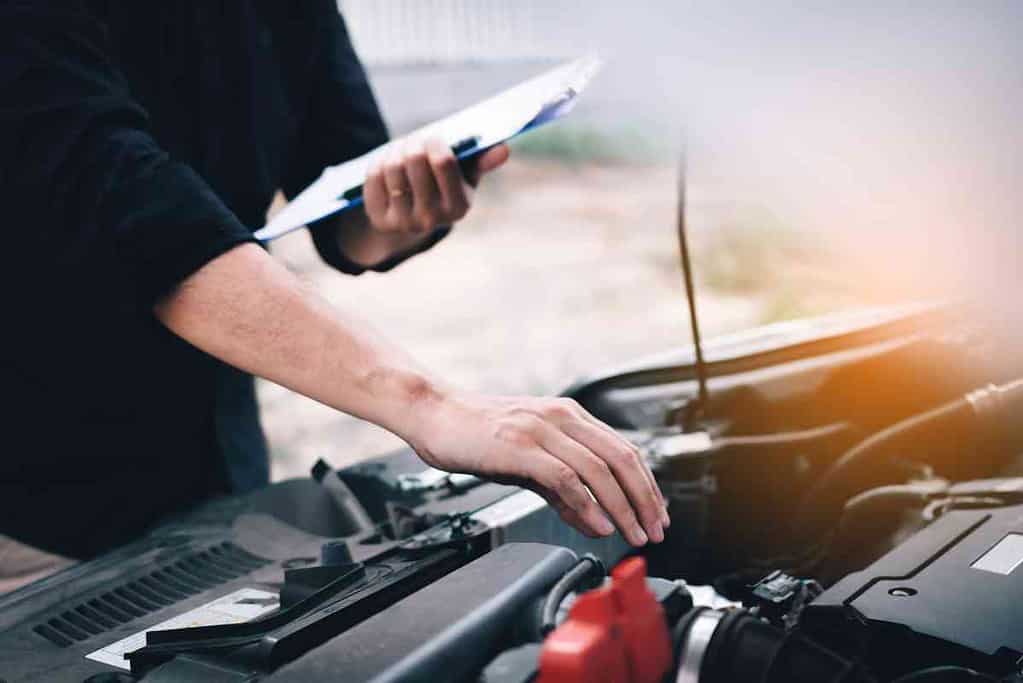Used Car Buying Tips: A Comprehensive 11-Step Guide for Smart Shoppers
Buying a used car can be a daunting task, especially if you’re a first-time buyer. However, if you follow some essential tips, you can make the process much easier and ensure that you get a car that meets your needs and budget.

What should I do when buying a used car?
When buying a used car, determine your budget before you start shopping. When you find a vehicle, research its history, inspect it yourself and by a professional, and take it for a test drive. If you like it, don’t forget to negotiate the price before finalizing the sale.
First and foremost, it’s important to do your research before making any purchase. This includes researching the make and model of the car you’re interested in, as well as the dealership or private seller you plan to buy from. You should also research the car’s history, including any accidents or repairs it may have had.
Another important tip is to take the car for a test drive. This will give you a chance to see how the car handles on the road and whether there are any issues with the brakes, steering, or suspension.
It’s also a good idea to have a mechanic inspect the car before making a purchase to ensure that there are no hidden issues that could cause problems down the road.
1. Do Your Research
One of the most important things you can do to ensure you get a good deal on a reliable used car is to do your research. Here are a few tips to help you get started:
- Know what you want: Before you start shopping, make a list of the features you want in a car. This will help you narrow down your options and focus on the cars that meet your needs.
- Research the make and model: Once you know what you want, research the make and model to learn about common problems, maintenance costs, and resale value. This information will help you make an informed decision.
- Check the vehicle history report: A vehicle history report can tell you a lot about a car’s past, including accidents, repairs, and maintenance records. Be sure to check the report before you buy.
- Get a pre-purchase inspection: Before you buy a used car, have it inspected by a trusted mechanic. This will give you an idea of any potential problems and help you negotiate a fair price.
By doing your research, you can make an informed decision and avoid buying a lemon. Take the time to research the make and model, check the vehicle history report, and get a pre-purchase inspection. With these tips, you’ll be well on your way to buying a reliable used car.
2. Determine Your Budget

One of the most important steps in buying a used car is determining your budget. Before you start shopping, you need to know how much you can afford to spend. This will help you narrow down your options and avoid overspending.
To determine your budget, consider your income, expenses, and other financial obligations.
Experts recommend that you spend no more than 20% of your monthly income on car payments, insurance, and maintenance.
You should also factor in the cost of gas when buying a car as well as registration fees and taxes.
It’s important to be realistic about your budget and avoid stretching yourself too thin. Remember that a car is a depreciating asset, which means it will lose value over time. You don’t want to be stuck with a car payment that you can’t afford or a car that requires expensive repairs.
Here are some tips to help you determine your budget:
- Create a detailed budget that includes all of your expenses
- Use an online car loan calculator to estimate your monthly payments
- Research the average cost of insurance for the used car you’re interested in
- Consider buying a car that is a few years old to save money on depreciation
By taking the time to determine your budget before you start shopping for a used car, you’ll be able to make a more informed decision and avoid overspending. Remember to factor in all of the costs associated with car ownership, and be realistic about what you can afford.
If budgeting for your next used car is a big sticking point for you, we’ve got you covered. We’ve compiled a list of the best used cars for less than $10,000 to help you pick the right one.
3. Check The Vehicle History Report
Before you make a purchase, it’s important to research the car’s history to ensure you’re getting a reliable vehicle. There are tons of tools available to help determine a car’s reliability rating before you purchase it. Here are some essential tips for researching a used car:
- Check the car’s vehicle identification number (VIN) to see if it has been in any accidents or has any outstanding recalls. You can find the VIN on the car’s windshield, registration, or insurance documents.
- Use a reputable website like Carfax or AutoCheck to obtain a detailed vehicle history report. This report will provide information on the car’s maintenance history, accident history, and title history.
- Ask the seller for maintenance records and receipts to see if the car has been well-maintained. A well-maintained car is more likely to be reliable and have fewer issues.
- Research the car’s make and model to see if it has any known issues or common problems. This information can be found on car forums, consumer websites, and through online research.
By taking the time to research the car’s history, you can avoid purchasing a vehicle with hidden issues or a problematic past.
Remember always to be thorough and cautious when buying a used car.
4. Inspect the Car’s Exterior
When buying a used car, it is crucial to inspect the exterior of the vehicle thoroughly. Here are some tips to help you evaluate the car’s exterior:
- Check for any signs of rust or corrosion on the body of the car. Rust can weaken the car’s structure and lead to expensive repairs in the future.
- Look for any dents, scratches, or other damage to the car’s exterior. These imperfections can affect the car’s resale value and may indicate that the vehicle was involved in an accident.
- Inspect the tires for signs of wear and tear. Uneven wear may indicate alignment or suspension issues.
- Check that all lights, including headlights, taillights, and turn signals, are functioning correctly.
- Inspect the windshield for any cracks or chips. Small chips can be repaired, but larger cracks may require a complete replacement.
When inspecting the exterior of a used car, it is essential to take your time and be thorough. Don’t be afraid to ask the seller questions about any concerns you may have.
Remember, a car’s exterior is not just about aesthetics. It can also provide valuable insights into the car’s history and condition. By following these tips, you can make a more informed decision when purchasing a used car.

5. Check The Interior
When buying a used car, it is important to thoroughly check the interior for any signs of wear and tear. Here are a few things you should look for:
- Check the seats for tears, stains, or unusual wear patterns. Sit in each seat to ensure they are comfortable and properly adjusted.
- Inspect the dashboard for any warning lights or signs of damage. Turn on the car and test all the gauges and electronics to make sure they are functioning properly.
- Look for any signs of water damage, such as a musty smell or damp carpeting.
- Check the condition of the steering wheel, gear shift, and pedals. They should not be excessively worn or loose.
- Inspect the headliner and door panels for any damage or signs of wear.
- Remember, it won’t just be you in there. Check out the whole interior to make sure it’s a family-friendly car.
Remember, the interior of a car can give you valuable insight into how well it has been maintained. A clean, well-cared-for interior is a good indication that the previous owner took good care of the vehicle.
6. Take the Car for a Test Drive
Now that you have inspected the car thoroughly, it’s time to take it for a test drive. This is an essential step in the used car buying process, as it will give you a good idea of how the car handles, accelerates, brakes, and sounds. Here are a few tips to keep in mind when taking a test drive:
- Choose a route that includes a mix of city streets and highways, if possible.
- Test the car’s acceleration, braking, and handling in different driving conditions.
- Listen for any unusual sounds, such as rattling or squeaking.
- Check the brakes for responsiveness and effectiveness.
- Test the car’s features, such as air conditioning, radio, and navigation system.
During the test drive, pay attention to how the car feels and handles. Is the steering responsive? Does the car feel stable and balanced? Do you feel comfortable driving it? If something feels off, it’s important to trust your instincts and consider whether this is the right car for you.
After the test drive, take a few minutes to inspect the car again. Look for any signs of wear and tear that you may have missed earlier, and check the oil and other fluids. If everything checks out and you feel confident in your decision, it may be time to make an offer on the car.
7. Get a Professional Inspection

Before purchasing a used car, it’s essential to get a professional inspection. Even if the car looks great and seems to run well, there may be hidden issues that only a trained mechanic can identify. Here are a few reasons why a professional inspection is so important:
- Identify hidden issues: A professional mechanic can identify problems that may not be immediately apparent to the untrained eye. They can check for things like frame damage, engine issues, and transmission problems.
- Peace of mind: Knowing that a professional has thoroughly inspected the car can give you peace of mind and help you make an informed decision.
- Negotiating power: If the mechanic identifies any issues, you can use this information to negotiate a lower price with the seller.
When getting a professional inspection, be sure to choose a reputable mechanic who has experience working with the make and model of the car you’re interested in. You can ask for recommendations from friends and family or look for reviews online.
It’s also important to be present during the inspection so you can ask questions and get a better understanding of any issues that are identified. Don’t be afraid to ask for clarification if you don’t understand something.
Overall, getting a professional inspection is a crucial step in the used car buying process. It can help you avoid costly repairs down the line and give you the confidence to make a smart purchase.
8. Negotiate the Price

Once you have found a car that you are interested in, it’s time to negotiate the price. Negotiation is an essential part of the used car buying process, and it can save you a lot of money if you do it right. Here are a few tips to help you negotiate the price:
- Do your research: Before you start negotiating, make sure you know the fair market value of the car you are interested in. Use online resources like Kelley Blue Book or Edmunds to get an idea of what the car is worth.
- Start low: Begin the negotiation by offering a price that is lower than what you are willing to pay. This gives you room to negotiate and can help you get a better deal.
- Be firm but polite: Negotiation can be stressful, but it’s important to remain calm and polite. Be firm in your offer, but don’t be rude or aggressive.
- Don’t be afraid to walk away: If the seller is not willing to negotiate or you can’t come to an agreement, don’t be afraid to walk away. There are plenty of other used cars out there, and you don’t want to overpay for a car that isn’t worth it.
- Consider other factors: When negotiating the price, consider other factors like the car’s condition, if the used car has too many miles, and any repairs that may be needed. These factors can affect the value of the car and should be taken into account when negotiating.
Remember, negotiation is a two-way street, and both parties should be willing to compromise. By doing your research, starting low, and being firm but polite, you can negotiate a fair price for a used car that fits your budget and needs.
9. Consider Financing Options
When buying a used car, it’s important to consider your financing options. Unless you’re paying in cash, you’ll need to secure financing to make the purchase. Here are a few tips to help you navigate the financing process:
- Shop around for the best interest rates. Don’t just accept the first offer you receive from a dealership or lender. Compare rates from multiple sources to ensure you’re getting the best deal.
- Know your credit score. Your credit score will play a big role in determining the interest rate you’re offered. Check your score before applying for financing so you know what to expect.
- Consider a pre-approval. Getting pre-approved for a loan can give you more negotiating power when it comes to the purchase price of the car.
- Beware of financing add-ons. Some dealerships may try to sell you add-ons like extended warranties on used cars or gap insurance. While these can be valuable, they can also add to the overall cost of the car. Make sure you understand what you’re paying for.
By taking the time to consider your financing options and shop around for the best rates, you can save yourself money in the long run. Don’t rush into a decision – take the time to make an informed choice that works for your budget and your needs.
10. Finalize the Sale
Once you have found the perfect used car and negotiated a fair price, it’s time to finalize the sale. This process can be intimidating, but with the right preparation, you can ensure a smooth transaction.
First, make sure you have all the necessary paperwork in order. This includes the title, registration, and any other relevant documents. Double-check that the seller has signed over the title and that the VIN number matches the one on the car.
Next, take the car for a final test drive. This will give you a chance to make sure everything is in working order and that there are no surprises. If you notice any issues, be sure to address them with the seller before finalizing the sale.
Before handing over any money, be sure to inspect the car one last time. Check for any signs of damage or wear and tear that you may have missed before. If everything checks out, it’s time to sign the paperwork and make the payment.
When making the payment, it’s best to use a secure method such as a cashier’s check or wire transfer. Avoid using cash, as it can be difficult to track and leaves no paper trail.
Finally, once the sale is complete, be sure to transfer the registration and insurance into your name. This will ensure that you are legally covered in case of an accident or other issue.

11. Transfer Ownership
Once you have found the perfect used car and negotiated the price, it’s time to transfer ownership. Here are some tips to make the process go smoothly:
- Make sure the seller has the title and all necessary paperwork to transfer ownership.
- Check with your state’s DMV to see what documents are required for a transfer of ownership.
- Fill out all necessary paperwork accurately and completely.
- Make sure to sign and date all required documents.
- Pay any necessary fees for the transfer of ownership.
- Get a copy of the bill of sale for your records.
It’s important to make sure the transfer of ownership is done correctly to avoid any legal issues down the road. If you’re unsure about any aspect of the process, don’t hesitate to ask for help from the DMV or a trusted legal professional.
Keep in mind that some states require a smog check or emissions test before a transfer of ownership can be completed. Make sure to check your state’s requirements and have the car inspected if necessary.
Once the transfer of ownership is complete, make sure to update your insurance policy and registration to reflect the change in ownership. This will help ensure that you’re covered in case of an accident or other issue.
31 Helpful Quotes Or Statistics About Buying A Used Car
- “A new car loses approximately 10% of its value the moment it is driven off the dealership lot.” – Carfax
- “Buying a used car can save you up to 30% compared to the cost of a new car.” – Kelley Blue Book
- “The average transaction price of a new car in the U.S. is over $40,000.” – Edmunds
- “The average age of a car on the road in the U.S. is 12 years old.” – IHS Markit
- “The used car market in the U.S. is more than twice the size of the new car market.” – Cox Automotive
- “A used car can be just as reliable as a new car if it has been properly maintained.” – Consumer Reports
- “The most reliable used cars tend to be those that have been well-maintained, with service records to prove it.” – U.S. News & World Report
- “The depreciation on a new car can cost as much as $3,000 per year in lost value.” – Bankrate
- “The average price of a used car in the U.S. is around $20,000.” – NADA
- “The top reasons people choose to buy a used car are affordability, reliability, and variety.” – Autotrader
- “The best time to buy a used car is typically at the end of the year or at the end of a model year, when dealers are trying to clear inventory.” – Forbes
- “Used cars can offer a better value than new cars, with lower insurance rates and registration fees.” – Car and Driver
- “The most important factors to consider when buying a used car are its condition, history, and price.” – Cars.com
- “One of the biggest advantages of buying a used car is that you can get more features for your money.” – Autoblog
- “The average interest rate on a used car loan is 9.02%.” – Experian
- “The average monthly payment for a used car loan is around $400.” – Experian
- “The top selling used cars in the U.S. are the Ford F-150, Chevrolet Silverado, and Honda Civic.” – Edmunds
- “Used car prices are currently at an all-time high due to supply chain disruptions caused by the COVID-19 pandemic.” – CNBC
- “The average savings from buying a used car instead of a new car is around $20,000 over five years.” – NerdWallet
- “One of the biggest risks of buying a used car is hidden damage or mechanical problems that are not immediately apparent.” – Consumer Reports
- “You can save money on a used car by buying from a private seller instead of a dealership, but you will have less legal protection.” – Bankrate
- “You can save money on a used car by buying from a rental car company, but the cars may have higher mileage and more wear and tear.” – U.S. News & World Report
- “Buying a used car from a certified pre-owned program can offer additional peace of mind, but it may come with a higher price tag.” – Carfax
- “You can research a used car’s history using services like Carfax, which provide information on accidents, service records, and ownership history.” – Carfax
- “The average cost of maintaining a used car is around $1,200 per year.” – Bankrate
- “The most reliable used car brands include Toyota, Lexus, and Mazda.” – Consumer Reports
- “Used electric cars can offer significant savings on fuel costs compared to gasoline-powered cars.” – Edmunds
- “The best time to buy a used car is on a weekday when dealerships are less busy and more willing to negotiate.” – U.S. News & World Report
- “Used cars that have been in accidents or have salvage titles can be significantly cheaper than their clean-title counterparts, but they may have hidden damage and can be difficult to resell.” – Carfax
- “You can negotiate the price of a used car based on its condition, mileage, and history.” – Kelley Blue Book
- “When buying a used car, it is important to have a mechanic inspect it to check for any hidden issues.” – U.S. News & World Report
Conclusion
Buying a used car can be a daunting task, but with the right knowledge and preparation, it can be a smooth and rewarding experience. By following the 11 tips outlined in this article, you can increase your chances of finding a reliable used car that meets your needs and budget.
Remember to do your research and take your time when shopping for a used car. Don’t rush into a purchase, and always take the car for a test drive to get a feel for how it handles on the road. Check the car’s history report and have it inspected by a trusted mechanic before making a final decision.
When negotiating the price, be firm but fair, and don’t be afraid to walk away if the seller is not willing to meet your terms. Keep in mind that buying a used car is a significant investment, and it’s essential to make an informed decision to avoid costly repairs and maintenance down the road.
By following these tips and being patient and diligent in your search, you can find a used car that meets your needs and provides reliable transportation for years to come.
